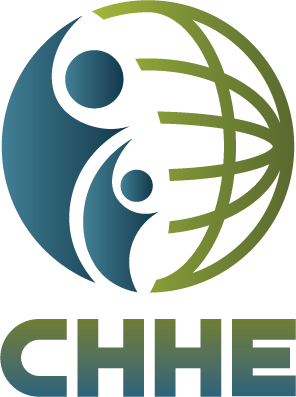Human Study Resources
Human Study Resources is comprised of the Epidemiology Resources (IRB, study design), Newborn Epigenetic Study (NEST), GenX Study and NC Tissue Consortium. Click on the links for additional information and to submit a request. You can also watch a short video for more information.
Epidemiology Resources
Research in human subjects
Conducting research in human subjects, especially if it includes collected tissues with personal identifiers, requires appropriate Institutional Review Board (IRB) approvals. We will provide consultation on the most appropriate strategies to access data for CHHE investigators interested in using identifiable human tissues or other human samples, regardless of source. Our new IRB Director and the NC State IRB Chair will now also be available for consultation.
Study design
As population-based studies may have unique sampling frames that can influence the interpretation of findings from specimens, we will consult with Center members about the appropriateness of specific specimens to answer the research question of interest.
Questionnaire development assistance
For scientists interested in collecting questionnaire data, we will help design the questionnaire and develop an administration plan.
Additionally, we will assist in developing subject recruitment strategies and completing regulatory documents.
Sample identification
We will facilitate identification of sample sources at NC State and elsewhere, such as resources designated below (see below, NEST, GenX, and Tissue Repositories).
GenX Exposure Study
The GenX Exposure Study is a prospective study of NC residents whose drinking water is contaminated by GenX and other newly identified PFAS. It consists of 344 Wilmington, NC residents who have been exposed via surface water and 153 Fayetteville, NC, residents who live near the chemical plant and had PFAS contamination in their well water. Participants range in age from 6-86 and have provided blood, urine, and drinking water samples. In Fayetteville, participants also provided dust and wristband samples to assess ambient exposures to PFAS.
All samples are analyzed for PFAS using non-targeted analysis. Biological samples have also been assessed for clinical outcomes (lipids, thyroid function, and comprehensive metabolic panel). Remaining biological (serum, plasma, whole blood, and urine) and environmental samples (dust and wristband extracts) are stored and available to CHHE investigators interested in PFAS topics. Additionally, due to the complexity of the exposure data, we will make these data sets available to CHHE investigators interested in analysis of complex mixtures, geospatial analyses, and other challenging statistical questions.
Contact Dr. Jane Hoppin at jahoppin@ncsu.edu for more information.
The Newborn Epigenetics Study (NEST)
Dr. Hoyo leads a pre-birth cohort study of mothers and children residing in three contiguous counties–Wake (the home of NC State), Durham, and Orange. The overarching goal of the cohort study is to improve understanding of how the environment affects gene expression through epigenetic mechanisms such as DNA methylation and histone modification. She developed a specimen repository with annotated clinic and epidemiologic data from pregnant mothers and their children.
Over 2,500 pregnant women were enrolled during their first prenatal clinic (mean gestational age at enrollment was 13 weeks) and questionnaires and peripheral blood were collected for exposure characterization. At delivery, offspring cord blood and maternal blood specimens and parturition data were collected from over 2,000 women and children. This rich resource includes maternal peripheral blood, cord blood, and buccal cell DNA, RNA with appropriate IRB approvals, which CHHE members can access.
NC Tissue Consortium
Through the CHHE partnership with ECU, members will continue to have access to the NCTC. The BSOM’s Division of Surgical Oncology, through the UNC 16 campus University Cancer Research Fund administered by UNC Lineberger Comprehensive Cancer Center, supports the NCTC, an IRB-approved tissue bank that procures surgical specimens. The objective of the NCTC is to facilitate cancer-related research by providing service for collection, storage, and distribution of normal and malignant human specimens.
All patients who sign the consent form to donate tissue to the NCTC are assigned an identification number to protect their privacy consistent with Health Insurance Portability and Accountability Act guidelines. In addition to surgical tissues, demographic, treatment, and diagnostic information are shared with investigators. Tissue is procured after a pathologist has examined the specimen and obtained pertinent information necessary for patient care (e.g. diagnosis, inking of margins, etc.). Tissue types currently available include both diseased and normal tissues from breast, colon/rectum, pancreas, lung, soft tissue tumor, prostate, uterus, stomach, kidney, adrenal, liver, melanoma, and esophagus. Clinical data (e.g., age, gender, race, treatment, diagnosis) are organized in a searchable electronic database.
CHHE members receive ECU rates and may seek assistance to identify appropriate samples through Dr. Collier or the Human Study Support Resource.
